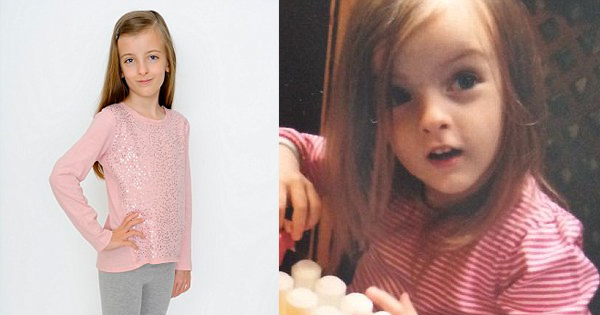It’s been six years since Lucy Halls tumbled down the stairs and suffered a minor concussion, but she’s still dealing with the consequences to this day.
Immediately after Lucy’s mother, Laura Halls, took her to the hospital, she were horrified to learn that the little girl had fractured her skull.
The fact that Lucy had also suffered a concussion was only an afterthought for Halls and her family.
Although the 1cm fracture ended up healing just fine without treatment, Halls never even imagined that the effects of Lucy’s concussion would still be present six years later.
“After the accident Lucy lost her appetite — and having always been a very placid child, she began to throw tantrums,” Halls, 30, explained, The Daily Mail reported. “She also seemed to regress — she wanted her milk out of a bottle, which she hadn’t had since she was a baby. At first I put it down to the crack in her skull, but after we met her paediatrician a month later we realised it was the concussion.”
According to a Canadian study published earlier this month, even a mild concussion can have a lasting effect on a child’s personality, communication skills, and overall development.
The study’s researchers monitored 130 children aged 5 and under—a third of the participants had suffered previous concussions, while another third had experienced an orthopedic injury, and the rest suffered no injuries at all.
Six months after the initial injuries, the children who suffered concussions reportedly showed obvious signs of impairment in communication and interaction with their parents.
“The quality of parent-child interactions following concussion was significantly reduced compared with non-injured children,” said Miriam Beauchamp, senior author of the study.
The results in this particular study are especially alarming, as concussions seem to be relatively common around the world.
While a concussion is technically defined as a temporary impairment of consciousness, you don’t actually have to blackout to experience one.
Children are particularly prone to the lasting effects of concussions, according to the study’s authors.
“Also, they are more prone to concussion because their head is big compared with the rest of their body,” said Colin Shieff, a consultant neurosurgeon at the National Hospital for Neurology and Neurosurgery, in London, “and their muscles are weak, making them less resistant to external forces.”
“That a child grows up clumsy or not so good at spelling might well link back to when they whacked their head when they tumbled off their bike aged five,” he added.
In Lucy’s case, her parents were not warned to look out for any possible signs of the lingering effects of her concussion after she was released from the hospital.
“But when she started speaking we noticed a lisp and that she struggling to pronounce some words,” Halls said. “Over the next two days she appeared to have lost a large chunk of her vocabulary.”
Now 10, Lucy still has problems in school, especially when it comes to spelling, something her mother adamantly believes was caused by her concussion as a little girl.
“But I think she’ll always have problems finding words and her short-term memory is very poor,” she said. “When you ask what she did at school today and she says she can’t remember, she is telling the truth.”





